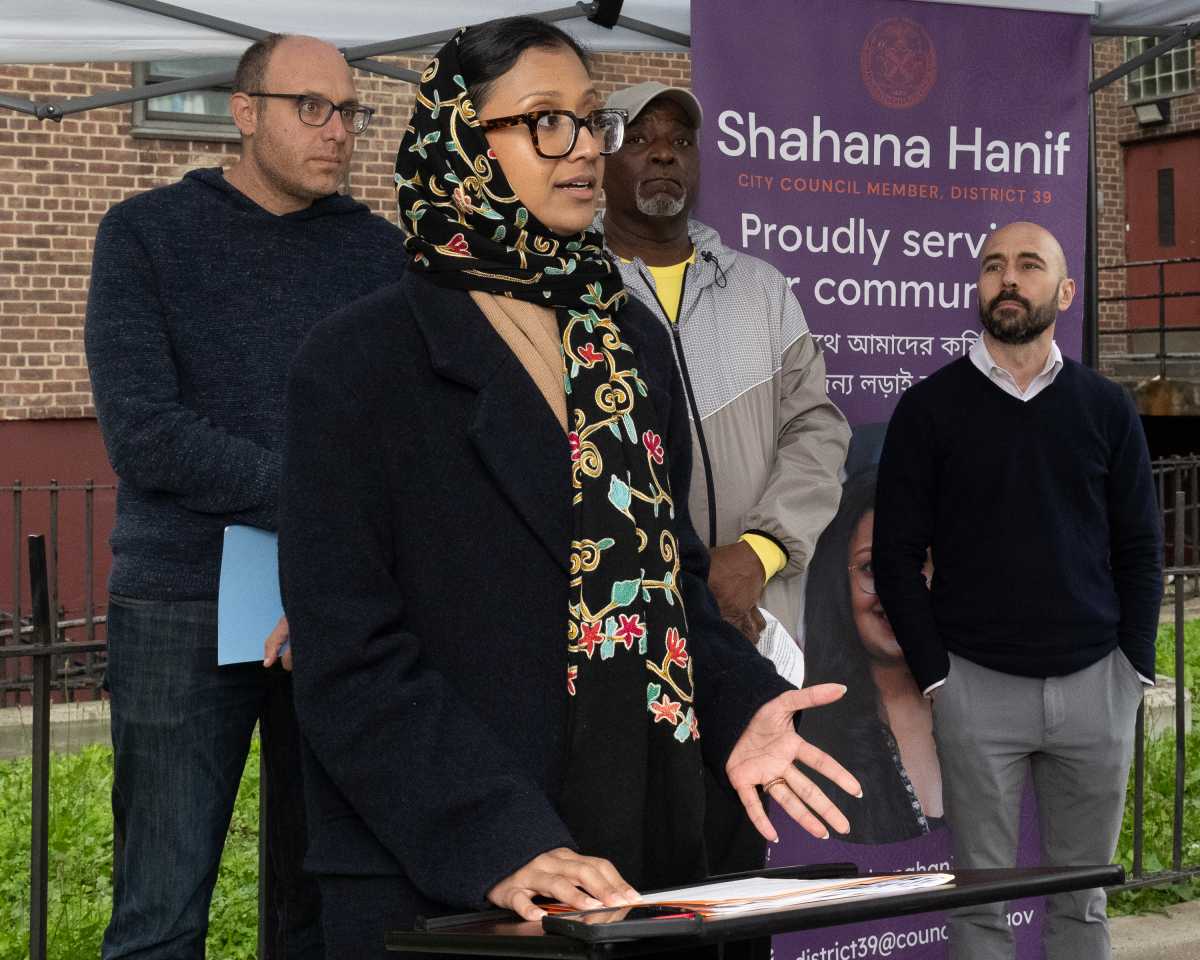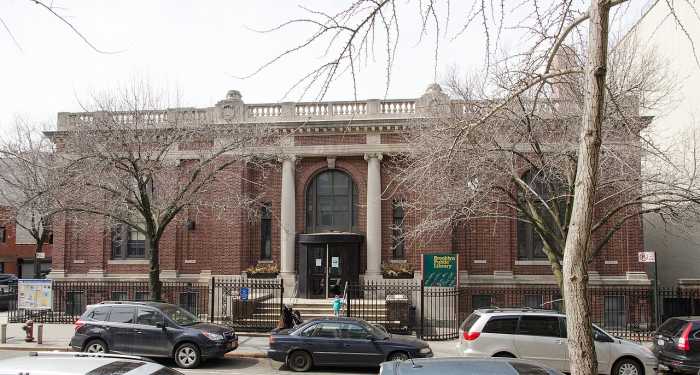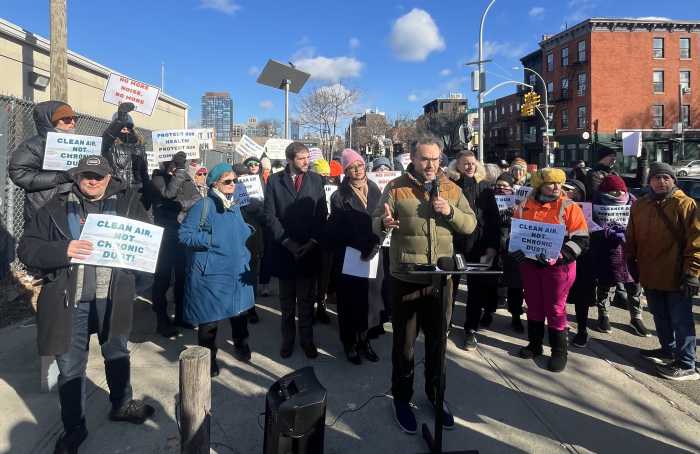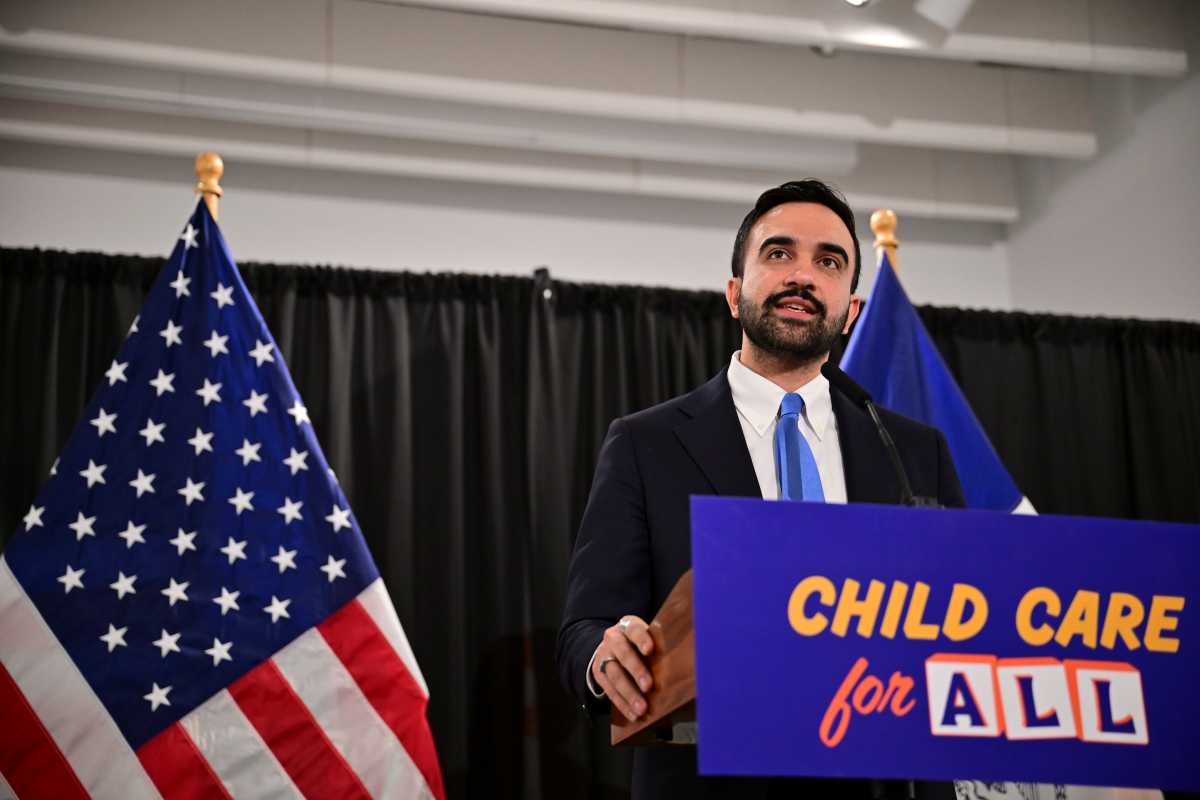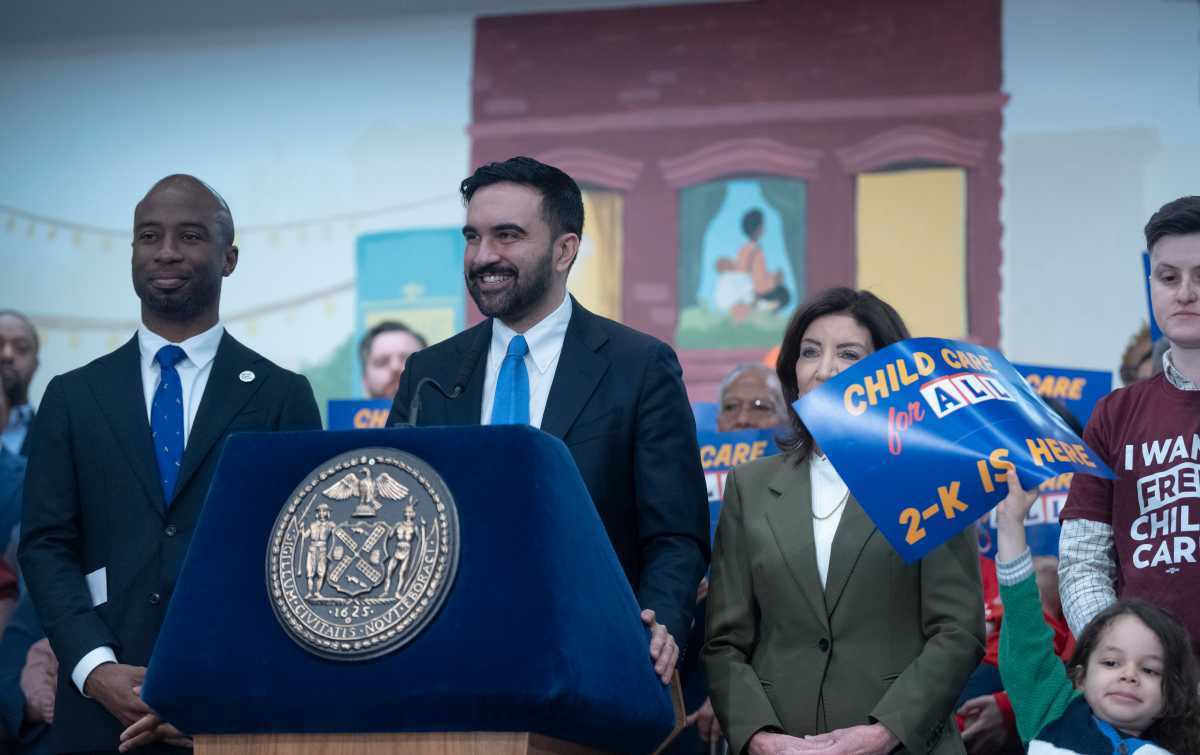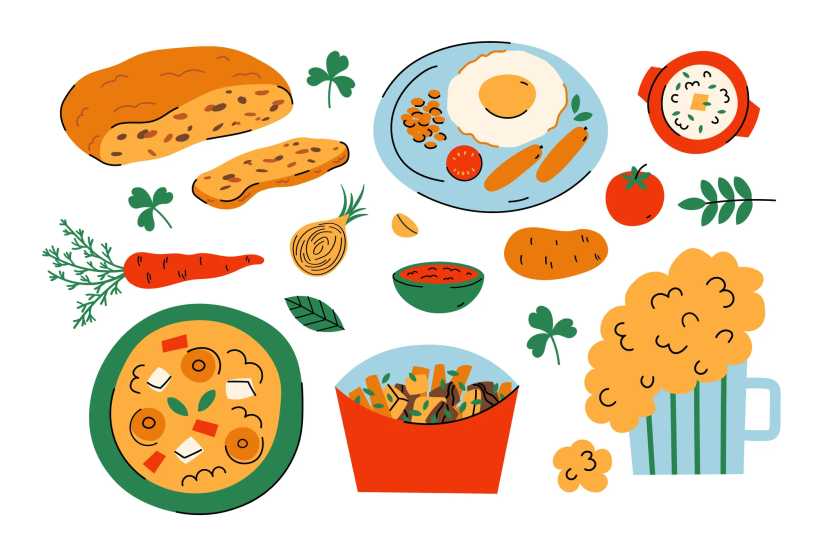Responding to federal cuts in anti-hunger programs, Council Member Shahana Hanif will allocate $20,000 in discretionary funding from her FY26 budget to Gotham Food Pantry and Community Help in Park Slope.
Each organization will receive $10,000 to help meet the surging demand for food assistance in Brooklyn and to help cover costs previously covered by federal funding.
At a press conference outside Gowanus Houses, Hanif explained that the funding allocation was a direct response to fill the gaps left by Trump’s “cruel and regressive federal policies.”
In March, the U.S. Department of Agriculture cut vital federal food assistance programs to the tune of $1 billion, including the Emergency Food Assistance Program (TEFAP) and Local Food Purchase Assistance Cooperative Agreement programs — programs that support food banks and other feeding organizations. On Thursday morning, House Republicans passed President Donald Trump’s massive domestic policy bill, which includes $290 billion in cuts to the Supplemental Nutrition Assistance Program (SNAP), which supports over 42 million low-income Americans. If passed by the Senate, advocates say, the cuts will exacerbate the hunger crisis in America.
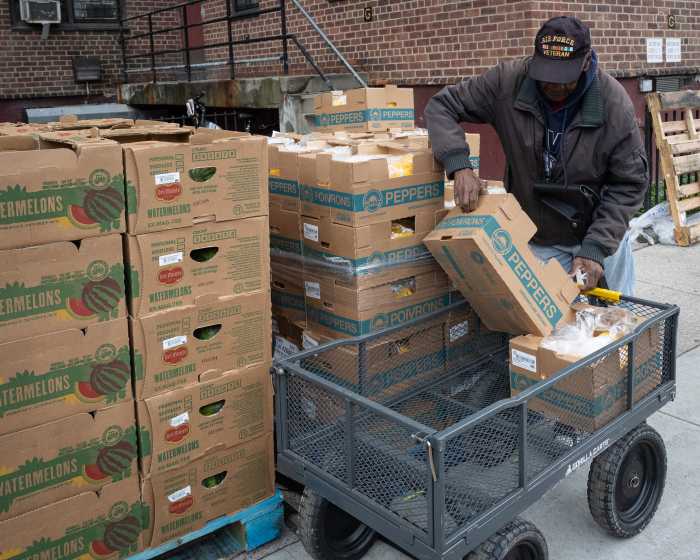
“President Trump and Elon Musk are dismantling anti-hunger programs, ripping away millions in funding under the false pretense of efficiency,” Hanif said. “And now, congressional Republicans have doubled down on this approach, passing legislation to slash Medicaid and SNAP in order to hand out tax breaks to the ultra-wealthy.”
Hanif also urged local businesses, nonprofits, and residents to step up and join the fight against food insecurity by sharing their resources and coordinating food rescue efforts — almost half of still edible-food goes to waste — to prevent hunger and reduce landfill waste.
“This funding isn’t just about food. It’s about dignity. It’s about equity. It’s about saying that in this city, in our city, no one should go hungry, not while 40% of food in this country is wasted. Hunger exists not because we lack food but because we fail to share it,” Hanif said.
Feeding organizations like CHiPS and Gotham Food Pantry provide a lifeline to food-insecure New Yorkers but face significant challenges due to the sudden disruptions in federal support, inflation, tariffs, and rising food costs.
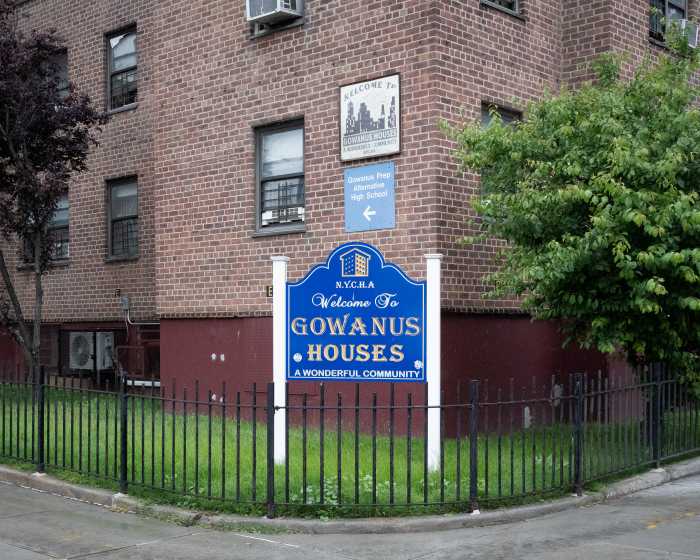
According to a report by City Harvest, more than 1.4 million New Yorkers are experiencing food insecurity, and one in four New York City children does not always know where their next meal will come from. Due to rising food costs and inflation, visits to food pantries and soup kitchens have increased by 85% compared to 2019. Food pantries, soup kitchens, and food programs have already reported over 1 million monthly visits in 2025, and 67% of those seeking help are employed.
Gotham Food Pantry, a food justice nonprofit founded in 2020 in response to the increase in food insecurity during the COVID-19 pandemic, rescues food from local retailers that would otherwise land in the dumpster. Since its founding, Gotham has saved and distributed over 10 million pounds of food to over 300,000 food-insecure New Yorkers in low-income public housing complexes across the five boroughs.
Gotham ran into delivery challenges after one of its transportation partners had funding frozen due to the USDA cuts, preventing them from transporting food designated for Gotham Food Pantry’s distributions, including Gowanus Houses. Gotham delivers up to 12,000 pounds of food to Gowanus Houses biweekly, assisting between 150 and 500 residents.
Douglas Silver, founder and executive director of Gotham Food Pantry, said Hanif’s contribution of $10,000 would go a “long way” in helping deliver needed food resources to Gowanus Houses and other Brooklyn partners.
“Hunger is not just an unconscionable problem — it is an unnecessary one. We produce more than enough nutritious food to feed every New Yorker — and every American — many times over,” Silver said. “Yet, that food often goes to waste while our neighbors go hungry. This disparity is not merely a matter of scarcity; it is a reflection of systemic issues within our food system. It’s about how food is grown, subsidized, and distributed. It’s about who has access to it and who benefits from the current structures in place.”
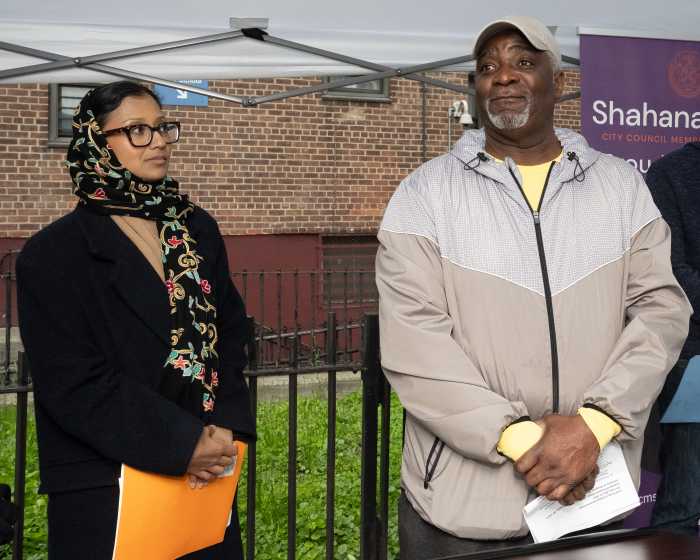
Silver also pointed out that slashing federal programs like SNAP benefits would not only deepen the hunger crisis but push more families into poverty, emphasizing that SNAP wasn’t a “handout” but “one of the most effective economic tools in the federal arsenal -besides providing essential nutrition, every dollar invested in SNAP generates $1.50 in local economic activity and is strongly linked to improved public health and reduced healthcare costs.
“Food is not a luxury; it’s a basic human right,” Silver said.
Peter Endriss, executive director of CHiPS, a food pantry and soup kitchen established in 1971, said the funding came at a crucial time.
“The current federal funding and programming cuts occurring contemporaneously with threats to supplemental nutrition benefits and looming inflation and possible recession caused by tariffs and unpredictable economic conditions has made it nearly impossible for organizations such as CHiPS, who are on the ground, day in and day out, trying to feed everyone who comes to our doors, to succeed in their missions,” Endriss said. “State and city government funding has now become even more essential in helping us continue to rise to the moment and meet the ever-increasing need.”
CHiPS’s soup kitchen serves over 600 warm meals daily, six days a week. In addition to its food pantry program, CHiPS launched a mobile pantry in 2023, delivering fresh fruits, vegetables, and groceries to neighborhoods throughout Brooklyn, including Gowanus Houses.
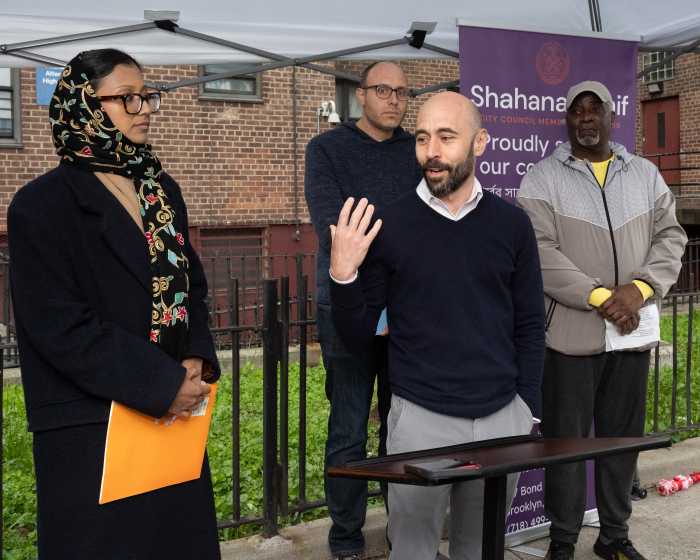
Endriss told Brooklyn Paper that since COVID-19, the number of people using the soup kitchen had quadrupled, and the number of New Yorkers using the in-house pantry and the mobile pantry program had also increased.
Because of the USDA cuts, CHiPS has lost critical funding sources.
“We get a lot of food support through the TEFAP program, which is the big federal program that cut $500 million. That’s where we’re going to start to see the problems because we get a lot of food through that [program] for our pantry and food service. Now that they’re cutting SNAP and Medicaid, that will trickle down. I fully expect our lines to double,” Endriss predicted.
William Reid, president of the Gowanus Houses Tenant Association, has worked alongside neighbors, Gotham Food Pantry, CHiPs, and Hanif’s office to operate food distributions.
“For many residents, these distributions are the difference between just getting by and having basic needs met. It is a grassroots effort where neighbors are stepping up for each other as systems continue to fail us, keeping our communities trapped in cycles of poverty, need, and hunger,” Reid said.


